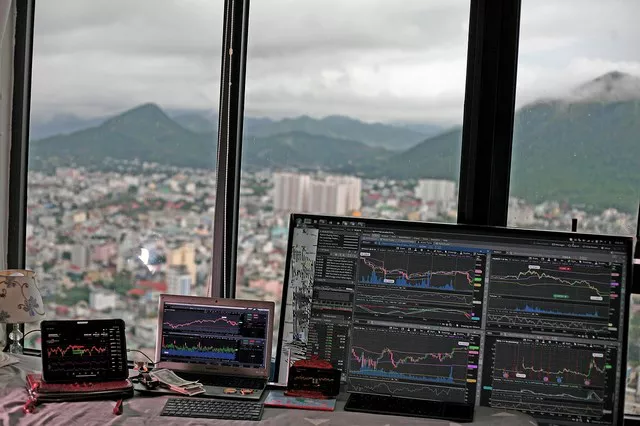Futures trading offers investors an opportunity to speculate on the price movements of various assets, including commodities, currencies, and financial instruments, with the potential for profit or loss. To engage in futures trading effectively, traders need access to a reliable and reputable brokerage platform that offers robust trading tools, competitive pricing, and responsive customer support. In this article, we’ll explore the key factors to consider when choosing a broker for futures trading and highlight some of the top brokerage firms in the industry.
Understanding Futures Trading
Before delving into broker selection, it’s essential to understand what futures trading entails. Futures contracts are standardized agreements to buy or sell a specified asset at a predetermined price on a future date. These contracts are traded on organized exchanges such as the Chicago Mercantile Exchange (CME) and the Intercontinental Exchange (ICE), where buyers and sellers come together to execute trades. Futures trading allows participants to hedge against price risk, speculate on price movements, and gain exposure to various asset classes, including commodities, stock indices, interest rates, and currencies.
Key Considerations When Choosing a Futures Broker
When evaluating futures brokers, traders should consider several key factors to ensure they select the right broker for their trading needs. These factors include:
1. Trading Platform: A robust and user-friendly trading platform is essential for executing trades efficiently and accessing real-time market data and analysis tools. Look for a broker that offers a platform with advanced charting features, customizable layouts, and order management capabilities.
2. Product Range: Different brokers may offer access to different futures markets and asset classes. Consider the variety of futures contracts available for trading, including commodities (such as crude oil, gold, and agricultural products), stock indices (such as the S&P 500 and NASDAQ), currencies (such as the Euro and Japanese Yen), and interest rates (such as Treasury bonds and Eurodollar futures).
3. Pricing and Fees: Compare the commission rates, margin requirements, and other fees charged by different brokers to ensure you are getting competitive pricing. Keep in mind that lower commission rates may come with trade-offs in terms of platform features, customer service, and reliability.
4. Customer Service: Responsive and knowledgeable customer support is crucial, especially during periods of high market volatility or technical issues. Look for a broker that offers multiple channels of communication, including phone support, live chat, and email, with prompt and helpful responses to inquiries and issues.
5. Regulatory Compliance: Choose a broker that is regulated by a reputable regulatory authority, such as the Commodity Futures Trading Commission (CFTC) in the United States or the Financial Conduct Authority (FCA) in the United Kingdom. Regulatory oversight helps ensure the safety of client funds and the integrity of the trading platform.
Top Futures Brokers in the Industry
Several brokerage firms specialize in futures trading and offer a range of services tailored to the needs of futures traders. Some of the top futures brokers in the industry include:
1. Interactive Brokers: Interactive Brokers is a leading online brokerage firm known for its low commission rates, advanced trading platform (Trader Workstation), and extensive range of futures products. The broker offers access to over 60 global futures exchanges and provides direct market access (DMA) to futures markets.
2. TD Ameritrade: TD Ameritrade offers futures trading through its thinkorswim platform, which features advanced charting tools, real-time data, and customizable trading strategies. The broker provides access to a wide range of futures contracts, including commodities, stock indices, and currencies, with competitive pricing and 24/7 customer support.
3. ETRADE: ETRADE offers futures trading through its Power E*TRADE platform, which provides advanced trading tools, educational resources, and customizable trading strategies. The broker offers access to a diverse range of futures products, including commodities, stock indices, and interest rates, with competitive pricing and comprehensive customer support.
4. NinjaTrader: NinjaTrader is a popular futures trading platform that offers advanced charting tools, automated trading capabilities, and a wide range of technical indicators. The platform supports multiple futures brokers and provides access to a diverse range of futures markets, including commodities, currencies, and stock indices.
Conclusion
In conclusion, choosing the right broker for futures trading is essential for success in the dynamic and fast-paced world of futures markets. By considering factors such as trading platform, product range, pricing and fees, customer service, and regulatory compliance, traders can select a broker that meets their specific needs and preferences. Whether you’re an experienced futures trader or just starting out, conducting thorough research and comparing different brokers can help you find the best partner for your futures trading journey.


